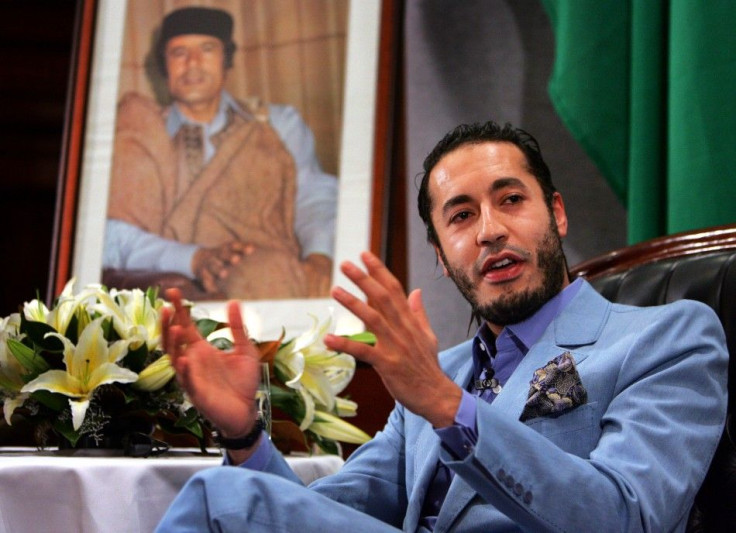Saadi Gadhafi has Refugee Status in Niger, but Libyans Demand Gadhafi's Sons

Libya's National Transitional Council (NTC) is furious that the West African nation of Niger offered amnesty to Moammar Gadhafi's son Saadi.
Saadi fled to Niger on Libya's southwestern border in September, one month prior to the death of his father and the final liberation of Libya. On Friday, Nigerien President Mahamadou Issoufou reaffirmed that his country wouldn't extradite Saadi back to Libya, where he's a wanted criminal.
The attitude of the Niger government regarding this has already been noted: We have already welcomed Libyan refugees for humanitarian reasons, said Issoufou. Of these, one is a son of [Moammar] Gadhafi -- Saadi Gadhafi.
The decision continues to frustrate Libyan leaders who want all of Gaddafi's relatives and former aides to be brought to justice as the country rebuilds.
It is unacceptable that Niger would turn into a country that harbors criminals wanted by international justice, NTC Deputy Chairman Abdel Hafiz Ghoga said Monday.
We call on Niger to reconsider its unjustified position.
Saadi is also wanted by the International Criminal Court (ICC) on war crimes charges. As a signatory on the ICC's Rome Statute, Niger is required to deliver Gadhafi's son to The Hague for trial.
Saadi's brother Saif al-Islam, -- who is still in hiding, likely somewhere in the Sahara desert and possibly on his way to Mali --is also wanted by the ICC and is reportedly trying to negotiate his surrendor with chief prosecutor Luis Moreno-Ocampo.
The U.N. court accused Saif al-Islam and his father for shooting unarmed civilians during protests in February.
The ICC is also gathering evidence concerning mass rapes, and investigating reports that Gadhafi ordered his security forces to use rape as military tactic.
Niger hasn't extended the same courtesies to Saif al-Islam as they have to Saadi. The country said earlier this month that Saif al-Islam would be extradited to The Hague, and not to the Libyan authorities.
Saif al-Islam is not in Niger so I will reply when and if the issue arises, President Issoufou said. Niger is a state of law, it is also a democratic state; we will deal with all of those issues in the sense of the role we have, the democracy we have, in accordance with international agreements.
During his rule, Moammar Gadhafi was a popular figure in Niger. Many ethnic Tuaregs in Niger and in Mali fought in Gadhafi's army as mercenaries, and even more Nigeriens led prosperous lives working in Libya.
Since the fighting began in Libya in February, more than 200,000 Nigeriens fled Libya, where they were earning unheard-of sums, by local standards, as tailors, security guards, cooks and drivers, according to The New York Times, damaging Niger's national economy by $80 million.
Meanwhile, one of Moammar Gadhafi's top aides and generals, Mansour Daou, has given some insight into the former dictator's final days. Speaking from a jail in Misrata, Daou told CNN that while hiding in Sirte, Gadhafi was very worried and erratic -- this could be because he was afraid.
After fleeing from rebels in Tripoli in August, Gadhafi felt a strong desire to go to Sirte, the city where he was born.
He wanted to go to his village, maybe he wanted to die there or spend his last moments there, said Daou.
Daou is awaiting trial for a range of charges, the most significant related to the 1996 Abu Salim prison massacre in which about 1,200 prisoners were killed. Daou has also been blamed for hiring mercinaries to fight the revolutionary soldiers during the conflict.
© Copyright IBTimes 2024. All rights reserved.




















